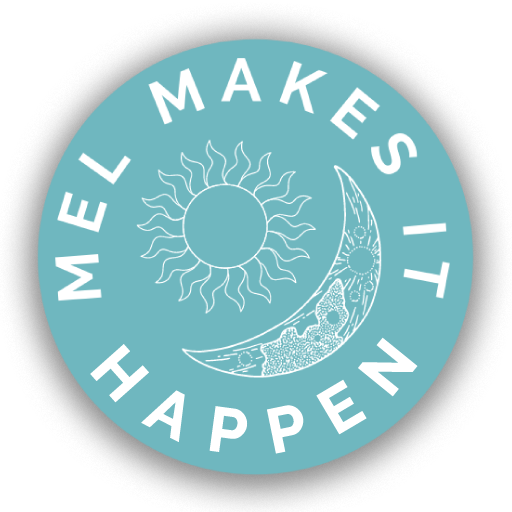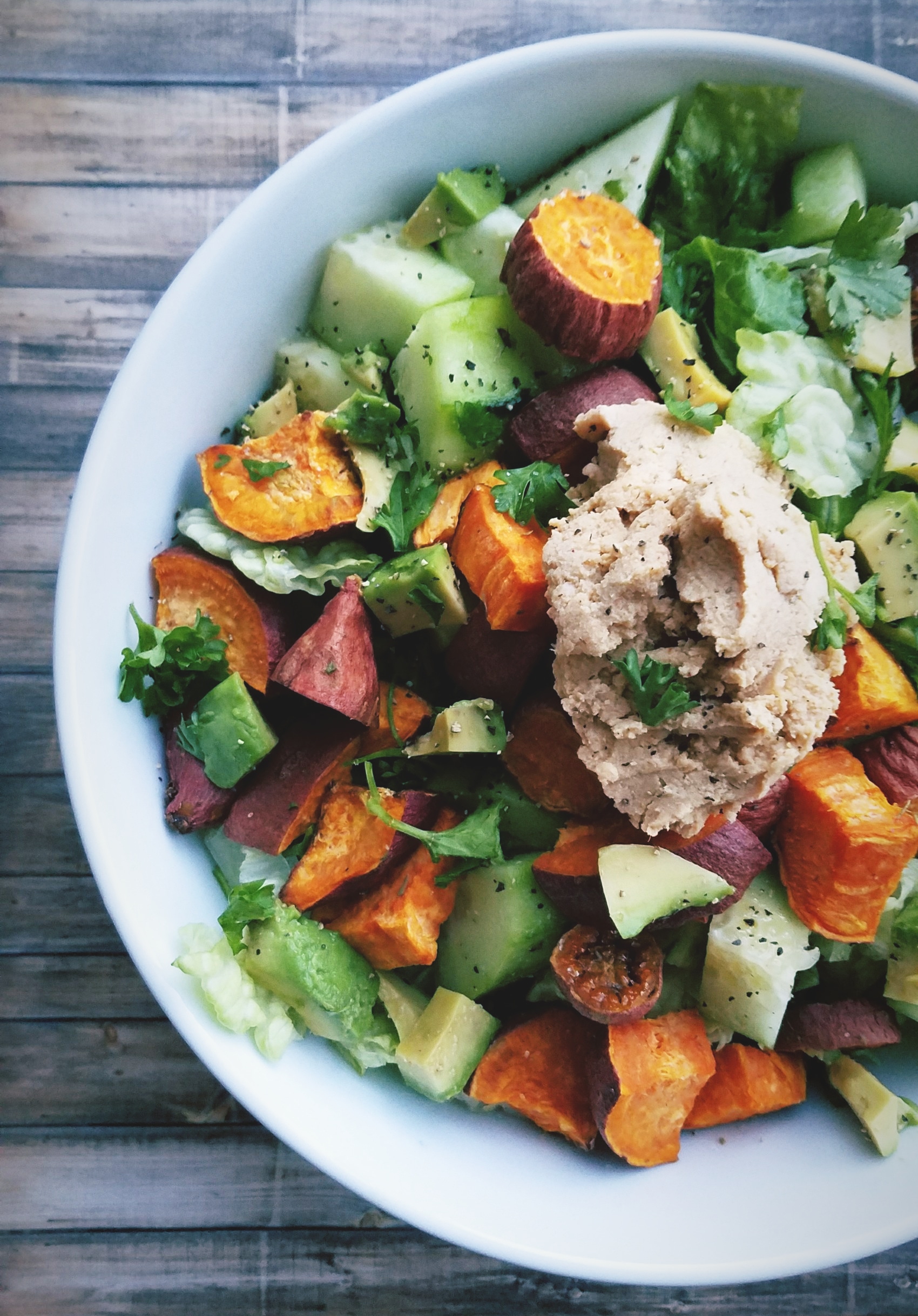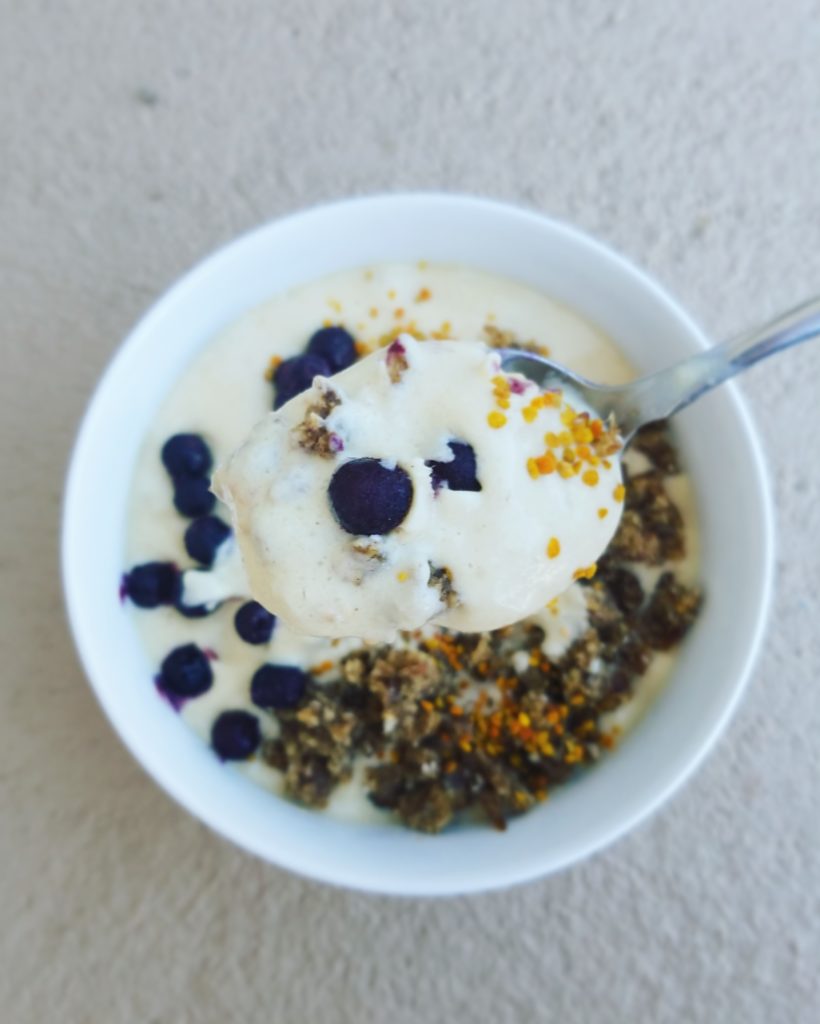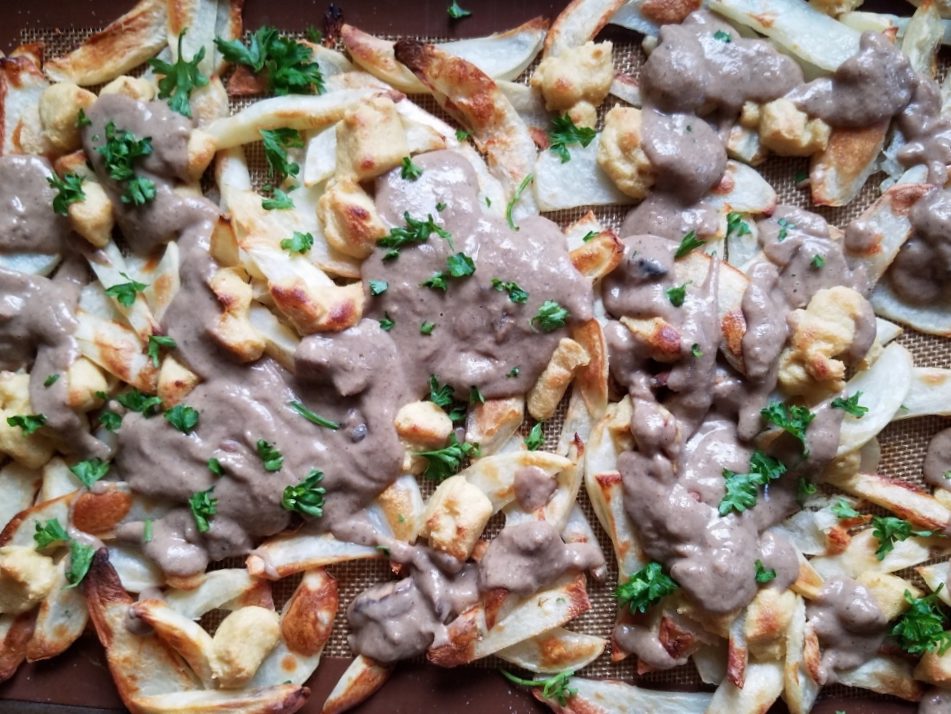For years, I’ve been hearing that an elimination diet is the only reliable way to discover intolerances. It would be amazing if we could just KNOW if a food item isn’t well-tolerated. I mean, there are some companies which offer food-sensitivity testing but for a steep price tag; though, they are not scientifically proven to be accurate. As for elimination diets, there are established programs created by companies, like Clean Program or Be Well Cleanse. After lots of research—and to accommodate my needs—I decided to conduct my own elimination diet, loosely based off of established protocols.
Let me begin by breaking down why I decided to do an elimination diet:
- I felt weighed down, bloated, and lethargic.
- My appetite rotated between ravenous and nonexistent.
- I found myself eating mindlessly or binging at night.
- The times I would eat based on “hunger” often left me feeling sick afterwards.
- My digestion was fickle and I was frequently constipated.
- I was having trouble falling asleep and would struggle to get out of bed in the mornings.
- My skin was breaking out and my face looked red with inflammation.
- I felt insecure and uncomfortable in my own body.
When I started my 21 Day Elimination Diet, I had just experienced a painful break up and a whirlwind of stress at work. It was (what I thought was) the end of a series of challenges and my body showed the stress. Specifically, I gained a little bit of weight and felt like my digestive system was not functioning well. Gut health is definitely important so I knew I needed to address this. Now, I haven’t ever had reason to believe I am intolerant to any foods but I wanted to rule out the possibility of an intolerance. At the very least, I hoped cleaning up my diet would help me feel back to normal.
Personally, I based my pursuit of an elimination diet off of the Clean Program and read additional materials about how to do your own clean cleanse at home. Clean has a helpful list of foods to include here and foods to exclude here! This post is NOT is not in any way sponsored by the program; I just liked that they had a straightforward list of foods to focus on including and excluding for the duration of the cleanse. I stocked up on my favorite plant-based protein powders: Tone it Up and Nuzest. Plus, I purchased digestive enzymes and oil of oregano supplements, in addition to my usual probiotic, to aid in cleansing.
Here’s what a general outline of my first week of the elimination diet looked like:
Breakfast smoothie + 1 probiotic + 1 digestive enzyme + 1 oregano oil
Snack (optional)
Lunch meal + 1 digestive enzyme + 1 oregano oil
Snack (optional)
Dinner Smoothie + 1 digestive enzyme + 1 oregano oil
The Clean Program, different than other elimination diets, encourages a breakfast and dinner smoothie so as to lighten the load on the digestive system and encourage “detoxing”. Of course, I made all smoothies, snacks, and meals with clean-approved foods! The program also advises to use the period of elimination as a time to identify natural and real hunger cues. In spite of this, I found myself reaching for snacks because I have been on a 5-meals-a-day structure for a while.
If you know me, you know I LOVE smoothies but, by the end of this first week, I was over them.
The trouble with the smoothies was the fact that they were cold. I am stating the obvious here but they felt really uncomfortable in me energetically (I’m pretty “vata” in Ayurvedic doshas). As I mentioned previously, I have had digestive issues. So, the idea of throwing cold and frosty liquids into my stomach made me feel like I was putting out my already measly digestive fire. Also, cold food—especially at dinnertime—doesn’t give you the feeling of having eaten something substantial. I restrained from snacking afterwards only because I knew the smoothie was meant to be the last meal of the day.
Also, it doesn’t help that I tried to make a savory green smoothie for dinner around Day 6 and it was the biggest, grossest, FAIL. At that point, I decided I would continue the elimination diet but without doing the breakfast and dinner smoothies. From that point on, I made some smoothies at breakfast sometimes but, for the most part, I enjoyed actual meals.
Meanwhile…
I read some boards online where people discussed their tips for short-term elimination diets, like I was doing. Most said the first few days were tough but, after that, it became easier. They felt lighter and more energized. #goals I experienced the contrary result. Unfortunately, I still felt all of my above noted symptoms of bloat, constipation, lethargy, etc. Basically, I was crawling by to reach Day 21. I even received comments from others who said I looked tired and not like myself.
Admittedly, situations at work were worsening and my emotional well-being was, simply put, sucky. So, that could have been a factor. Still, you would think eating good, nutritious food would have demonstrated some positive improvements in my body!
It was only when a coworker told me I should get my blood levels checked for anemia or maybe up my B vitamins that I realized I hadn’t been taking my supplements! I stopped any regular vitamins and supplements for the purpose of the elimination diet but maybe that wasn’t a good idea. The next day, I began taking my b-complex again and within a day I felt some energy come back to me. Now, that didn’t solve all of my problems, but at least now I wasn’t going to have to walk around each day feeling foggy-headed and weak.
The re-introduction phase also made me feel better.
I was living off of green vegetable sautés, avocados, and homemade gluten-free tortillas so I was excited to add in some old favorite foods. You can check out the excluded foods list to see what I eliminated but so far here is what I’ve introduced with no noticeable problems:
- Peanut Butter – I like Wild Friends or Smuckers Natural Style (no added oils or preservatives)
- Wheat – I use Alvarado Street Bakery Sprouted Whole Wheat Bread; One Degree Organics Spelt Flour (update: I’m actually gluten-sensitive, I just couldn’t detect it at this time!)
- Oats – standard whole rolled oats
- Tomatoes – No issues. I do like to squeeze out the seeds to reduce lectins
- White Potatoes – I always had difficulty with blood sugar imbalance after eating these so I wasn’t expecting much. I did, however, cut them into fries and soak them for a few hours to release some of their starch before making them in this poutine recipe. 😀 That seemed to lessen their impact on my blood sugar! Read more about how I soak potatoes to reduce their starch here!
Food I found potentially problematic:
- Eggs – They don’t give me any immediate digestive discomfort but I did notice my the skin on my face was a lot redder and had underlying inflammation that wasn’t evident before. I’m going to limit eating eggs (even more than before) so I can keep an eye on the inflammation issue.
- Cauliflower – I didn’t eliminate this food during my elimination diet but I did after the first week. Cruciferous vegetables, while allowed, are very gassy and tough to digest. I steamed and froze my own cauliflower for use in smoothies and, yet, I would feel extra bloated and uncomfortable after eating. Roasted or pan-fried cauliflower did not feel much better. I’m going to gradually work on eating cauliflower as my digestive issues improve. I figure I will need to eat it well-cooked and in smaller amounts, too.
- Almond butter/ Almond flour – Again, another food that wasn’t specifically excluded. Just like cauliflower, I discovered almond products did not sit well with me. I don’t know if I was overeating either of these but they would make me feel similar to processed food SICK. In theory, nuts are meant to be eaten in 1oz. or 1/4 cup portions. So, large amounts of almonds (or any nuts) in one sitting is bound to make me feel weighed down.
- Coconut – I included coconut on the list for the sake of keeping track. I’ve eaten coconut in all of its forms but the only one to cause me issues was coconut flour. Very soon after eating coconut flour something, I would feel my throat tighten up as if it was hard to swallow. This was prior to my elimination diet and persisted afterwards. Additionally, after my diet, I would get the same throat tightening, though slightly less intense, with other coconut items like oil, butter, and especially dried shredded coconut. I don’t notice any other negative effects so I’ll keep eating coconut to hopefully redevelop better tolerance.
So, back to my elimination diet, I think my biggest takeaways were habits more than food intolerances.
I learned that too much of anything can become a bad thing.
This was demonstrated when I was eating two smoothies a day and (my favorite) protein powder just started to feel unwelcome in my body. I also developed a dislike for cold smoothies and moderate dislike of cold foods. While I still do crave some cold dishes, I prefer the way warm foods feel in my stomach. It’s also important to simply change up my food and not overdo it by eating the same thing.
I want to address the tendency of overeating. When there is delicious food or (my kryptonite) baked goods around, then the temptation to overeat is real. I am guilty of eating too fast and therefore reaching for more than my body can efficiently digest. Obviously, I need to train myself to know my limits because eating half of a fresh baked banana bread loaf, or anything in excess, isn’t going to make me feel good.
The elimination diet also made me super-sensitive to sugar.
Per the Clean guidelines, I cut out added sugar. The only times I used a “sweetener” was in the form of dates but that wasn’t often. As I introduced foods, post-elimination diet, I realized how deeply sugar affected me. The smallest bit of sugar in an afternoon or evening snack ended up keeping me awake later than usual.
The same goes for caffeine.
Now, I never drink coffee because I already know it will make me jittery as heck. Though, I’ve previously been okay with other naturally-caffeinated products. Green tea, for example, used to give me a steady flow of energy without a crash. Yet, I can definitely feel the micro-crash now and I don’t like it. Especially because the crash makes me snack-y. I certainly don’t want to be eating just because caffeine falsely affect my blood sugar/hunger levels.
Maybe these are feelings that everyone has with caffeine but I feel like it disrupts my rhythm. Unfortunately, my old fave chocolate can also be problematic. I have to be careful not to use over a tablespoon of cacao powder or cacao nibs at once. As well, I need to limit chocolate, so as not to throw off my blood sugar from the caffeine intake.
Habits vs. Need.
I don’t recommend anyone go on an elimination diet just to evaluate their relationship with food but it is inevitable. When my mind would tell me to eat, I would tune in to my body. Frequently, I used those moments to assess whether my hunger cravings were true or just boredom–or worse, habit. Most of the time during this cleanse, I didn’t physically need food as much as I thought I did.
My main reason for embarking on the elimination diet in the first place was to tackle my BLOAT. Was that accomplished? Unfortunately, no.
So, why am I still experiencing bloat?
- My guess is: I might have continued eating a food that, unsuspectingly, is causing me digestive distress. My suspicion tells me nuts and nut butters (because I KNOW I eat a lot of them) and perhaps temperature of food plays a role, too.
- I may have an imbalanced gut flora (more on this in follow-up post!). If I lack the proper “good” bacteria in my intestines, then that makes digesting anything a mission.
- Lastly, stress. I don’t want to believe that this could still be playing a role because the stressors are technically over. It was two solid months of stressors drastically building up but I am no longer exposed to them. (Admittedly, I still think of them, at times). Still, I know stress can be the root manifestation of many evils such as the weight gain, digestive issues, and skin breakouts that I was experiencing. Its role is not to be underestimated.
It seems that the combination of issues I’ve been experiencing is a set of problems with no easy solution. Though, if there is anything I’ve learned from cycle-syncing, it’s that problems don’t surface out of nowhere. If unaddressed, the symptoms build up over time. They build and build until they finally become loud, noticeable, and demand attention. I’m now trying to provide that attention to some deep-rooted problems.
This post was quite an essay. Honestly, I put off writing it for so long –not just because I was slowly going through reintroduction but—because I didn’t know how to plate all of this information in a useful way. I couldn’t say, “Hey, I eliminated a food and now I feel better!” Still, I hope it was of some value or at least encourages you to think about the functionality of your health. All aspects, not just food, are important and can affect you.
Right now, I don’t have any clear answers. Though, I want to keep you all informed and involved incase you’re going through something similar. For this next leg of my journey, I will be revisiting a holistic approach to gain control over my health. If you feel inclined, please share any thoughts, advice, or stories you have in the comments! I love hearing what you guys have been through and your perspectives.
Xoxo.



